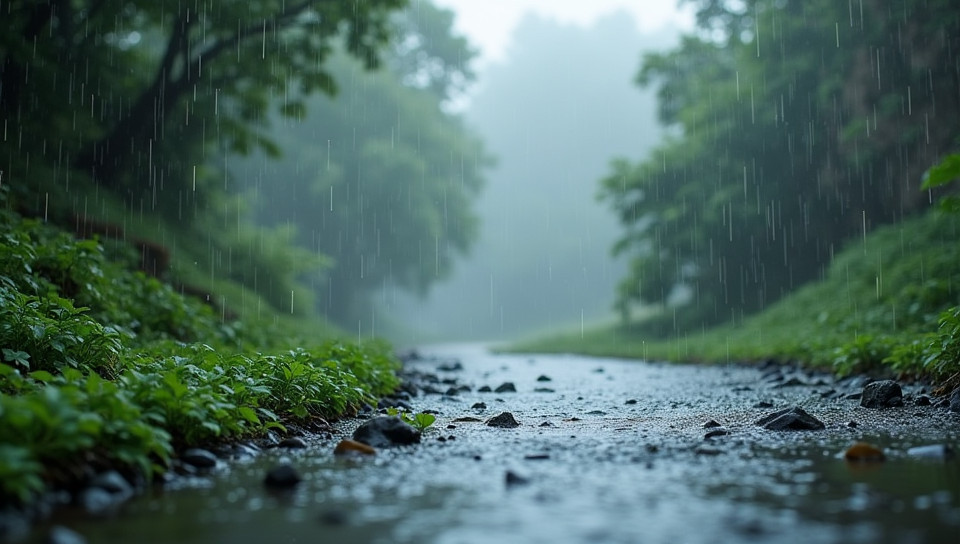Rainwater may not be free from pollutants 61%

The Hidden Dangers of Rainwater: What You Need to Know
When we think of rainwater, we often picture it as clean and pure, a natural resource that's free from pollutants. But the reality is far more complex. In many parts of the world, especially in urban areas, rainwater can be contaminated with pollutants, posing serious health risks to those who collect and use it.
The Sources of Contamination
Rainwater can pick up pollutants from various sources as it falls through the atmosphere and onto the ground. Some of these sources include:
- Industrial emissions
- Vehicle exhaust
- Agricultural runoff
- Construction sites
- Home and building maintenance activities
How Rainwater Becomes Polluted
When rain falls, it can combine with pollutants in the air and on surfaces, creating a toxic mixture that's collected as rainwater. This process is accelerated in urban areas where there are more sources of pollution. Additionally, if rainwater flows over contaminated surfaces, such as parking lots or construction sites, it can pick up heavy metals and other hazardous substances.
The Health Risks Associated with Polluted Rainwater
Using polluted rainwater for non-potable purposes, such as irrigation or toilet flushing, may not seem like a major issue. However, if the water is used for drinking or cooking without proper treatment, it can lead to serious health problems. Some of these risks include:
- Increased risk of cancer
- Respiratory problems
- Neurological damage
What Can We Do?
While it's difficult to completely eliminate pollutants from rainwater, there are steps we can take to minimize the risks associated with collecting and using this resource. These measures include:
- Using first flush devices or roof wash systems to divert initial rainwater flows that may contain high levels of pollutants
- Installing filters or treatment systems to remove contaminants before using the water for non-potable purposes
- Educating ourselves and others about the importance of maintaining clean stormwater management systems
Conclusion
The idea that rainwater is free from pollutants is a misconception. In reality, rainwater can be contaminated with a wide range of substances, posing serious health risks to those who collect and use it. By understanding the sources of contamination and taking steps to minimize our exposure to polluted rainwater, we can reduce the risks associated with this natural resource and ensure that it remains safe for future generations.
- Created by: Xīnyí Wong
- Created at: Aug. 19, 2024, 10:27 p.m.
- ID: 7772








